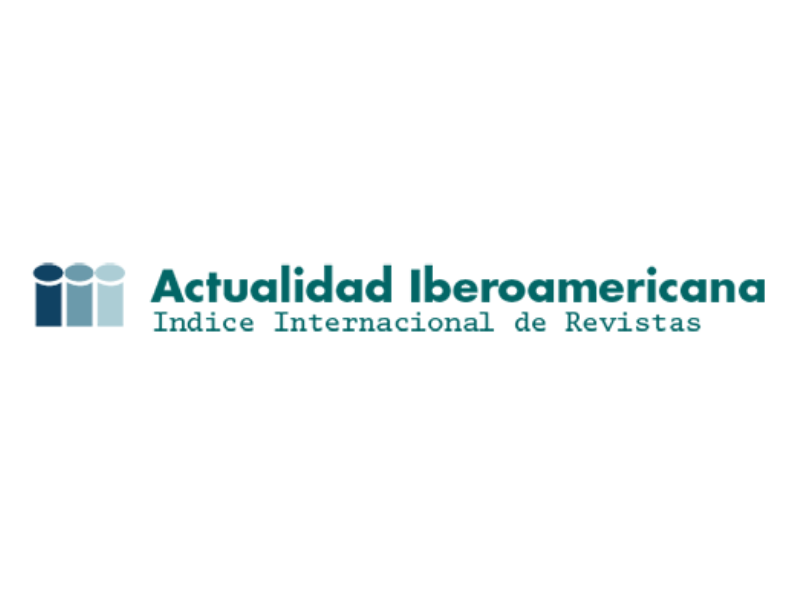Applying multicriteria analysis for choosing the best marination for pork
Applying multicriteria analysis for choosing the best marination for pork
Mostrar biografía de los autores
Objective. This research aimed to choose a best marination solution using the Analytic Hierarchy Process (AHP). Materials and methods. Pork meat samples were collected in a commercial slaughterhouse, and they were randomly distributed in four treatments with three different salt contents blend. Color, pH, retention of the solution, exudate and cooking loss, shear force and sensory attributes were assessed and evaluated. Multicriteria analysis using AHP was applied to the results in order to choose the best overall marination solution. Criteria used for selection were the physical and sensory characteristics of meat, and based on these criteria were classified solutions marination. Results. Results showed that the combination of the salts was the best alternative (Na2CO3+NaCl+Na5P3O10), followed by the solutions of (Na2CO3 + NaCl), and (Na5P3O10 + NaCl). Conclusions. All tested solutions with the salts used alone or in combination led to better physical and sensory attributes than the meat not marinated.
Key words: Firmness, sodium chloride, sodium tripolyphosphate, texture (Source:CAB).
Visitas del artículo 781 | Visitas PDF
Descargas
- Huff-Lonergan E, Lonergan SM. Mechanisms of water holding capacity of meat the role of post mortem biochemical and structural changes. Meat Sci 2005; 71:194-204.
- http://dx.doi.org/10.1016/j.meatsci.2005.04.022
- Alvardo C, Mckee, S. Marination to improve functional properties and safety of poultry meat. J Appl Poult Res 2007; 16(1):113-120.
- http://dx.doi.org/10.1093/japr/16.1.113
- Daguer H, Assis MTQM, Bersot LS. Controle da utilização de ingredientes não cárneos para injeção e marinação de carnes. Cienc Rural 2010; 40(9):2037-2046.
- http://dx.doi.org/10.1590/S0103-84782010005000138
- Sheard PR, Tali A. Injection of salt, tripolyphosphate and bicarbonate marinade solutions to improve the yield and tenderness of cooked pork loin. Meat Sci 2004; 68(2):305-311.
- http://dx.doi.org/10.1016/j.meatsci.2004.03.012
- Komoltri P, Pakdeechanuan P. Effects of marinating ingredients on physicochemical, microstructural and sensory properties of golek chicken. Int Food Res J 2012; 19(4):1449-1455.
- Xu SQ, Zhou GH, Peng ZQ, Zhao LY, Yao R. The influence of polyphosphate marination on Simmental beef shear value and ultrastructure. J Muscle Foods 2009; 20(1):101-116.
- http://dx.doi.org/10.1111/j.1745-4573.2008.00136.x
- Saha A, Lee Y, Meullenet JF, Owens CM. Consumer acceptance of broiler breast fillets marinated with varying levels of salt. Poult Sci 2009; 88(2):415-423.
- http://dx.doi.org/10.3382/ps.2008-00230
- Santos VMO, Caldara FR, Seno LS, Feijó GLD, Almeida Paz ICL, Garcia RG, et al. Marinade with alkaline solutions for the improvement of pork quality. Pesq Agropec Bras 2012; 47(11):1655-1662.
- http://dx.doi.org/10.1590/S0100-204X2012001100013
- Saaty TL, Vargas LG. Models, Methods, Concepts & Applications of the Analytic Hierarchy Process, 2nd Edition. New York, USA: International Series in Operations Research & Management Science. Springer; 2012.
- http://dx.doi.org/10.1007/978-1-4614-3597-6
- Pilecco M, Almeida Paz ICL, Tabaldi LA, Nääs IA, Garcia RG, Caldara FR, et al. Multi-Criteria analysis of the influence of rearing, equipment, and catching management practices on the incidence of back scratches in broilers. Rev Bras Cienc Avic 2012; 14(4):233-304.
- Omkarprasad SV, Sushil K. Analytic hierarchy process: An overview of applications. Eur J Oper Res 2006; 169(1):1-29.
- http://dx.doi.org/10.1016/j.ejor.2004.04.028
- Srdjevic B. Linking analytic hierarchy process and social choice methods to support group decisionmaking in water management. Decis Support Syst 2007; 42(4):2261-2773.
- http://dx.doi.org/10.1016/j.dss.2006.08.001
- Caldara FR, Garcia RG, Almeida Paz ICL, Nääs IA, Santos RKS, Foppa L. Assessing the most suitable floor system for growing finishing piggery under tropical conditions using the analytic hierarchy process. Ital J Anim Sci 2014; 13(1):136-141.
- http://dx.doi.org/10.4081/ijas.2014.2830
- Almeida Paz ICL, Garcia RG, Bernardi R, Nääs IA, Caldara FR, Freitas LW, et al. Selecting appropriate bedding to reduce locomotion problems in broilers. Rev Bras Cienc Avic 2010; 12(3):189-195.
- http://dx.doi.org/10.1590/S1516-635X2010000300008
- MakeItRational – Analytical Hierarchy Process Software. 2009. URL Disponible en:http:// makeitrational.com/analytic-hierarchy-process/ahp-software.
- Sheard PR, Nute GR, Richardson RI, Wood JD. Effects of breed and marination on the sensory attributes of pork from Large White and Hampshiresired pigs. Meat Sci 2005; 70(4):699-707.
- http://dx.doi.org/10.1016/j.meatsci.2005.03.006
- Haluk E, Gokce R. Comparison of marinating with two different types of marinade on some quality and sensory characteristics of Turkey breast meat. J Anim Vet Adv 2011; 10(1):60-67.
- http://dx.doi.org/10.3923/javaa.2011.60.67
- Bertram HC, Meyer RL, Wu Z, Zhou X, Andersen HJ. Water Distribution and microstructure in enhanced pork. J Agric Food Chem 2008; 56(16):7201-7207.
- http://dx.doi.org/10.1021/jf8007426
- McDonnell CK, Lyng JG, Allena P. The use of power ultrasound for accelerating the curing of pork. Meat Sci 2014; 98(2):142-149.
- http://dx.doi.org/10.1016/j.meatsci.2014.04.008
- Szerman N, Gonzalez CB, Sancho AM, Grigioni G, Carduza F, Vaudagna SR. Effect of whey protein concentrate and sodium chloride addition plus tumbling procedures on technological parameters, physical properties and visual appearance of sous vide cooked beef. Meat Sci 2007; 76(3):463-473.
- http://dx.doi.org/10.1016/j.meatsci.2007.01.001
- Baublits RT, Meullenet JF, Sawyer JT, Mehaffey JM, Saha A. Pump rate and cooked temperature effects on pork loins instrumental, sensory descriptive and consumer-rated characteristics. Meat Sci 2006; 72(4):741-750.
- http://dx.doi.org/10.1016/j.meatsci.2005.10.006
- Goli T, Ricce J, Bohuon P, Marchesseau S, Collignan A. Influence of sodium chloride and pH during acidic marination on water retention and mechanical properties of turkey breast meat. Meat Sci 2014; 96(3):1133-1140.
- http://dx.doi.org/10.1016/j.meatsci.2013.10.031























